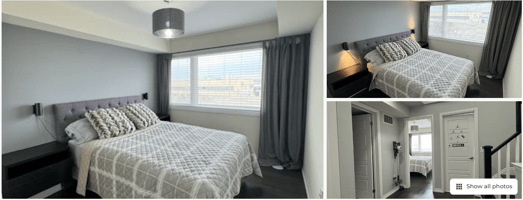Finding housing in Canada before you arrive is crucial. It ensures you have a comfortable place to...
7 Costly Mistakes to Avoid When Choosing Your Next Accommodation
Discover the top blunders to steer clear of when selecting your next place to stay.
1. Overlooking the Lease Agreement Details
Why It Matters:
The lease agreement is the legal contract between the tenant and landlord, outlining rights, responsibilities, and rules. Ignoring the specifics can lead to unexpected obligations, penalties, or restrictions. For example, some leases include clauses about guest policies, decoration limitations, or the tenant's maintenance responsibilities that, if not understood, could result in financial penalties or loss of the security deposit.

How to Avoid:
Read every section of the lease carefully and ask for clarification on anything that's not clear. Don't hesitate to negotiate terms that seem unreasonable. It's also wise to have a knowledgeable friend or legal advisor review the agreement
2. Ignoring the Hidden Costs
Why It Matters:
Focusing solely on monthly rent without considering other expenses can lead to budget overstretch. Costs such as utilities, parking fees, internet, and maintenance charges can significantly increase monthly outgoings.

How to Avoid:
Ask the landlord or property manager for a detailed breakdown of all potential costs. Factor these into your budget to ensure you can afford the total cost of living in the accommodation
3. Underestimating the Importance of Location
Why It Matters:
The location of your accommodation affects daily life in many ways, from commute times to social activities. A cheaper rental price may not be worth it if you're far from work, school, or essential services, leading to higher transportation costs and time wasted commuting.

How to Avoid:
Prioritise locations based on proximity to key places in your daily routine. Consider the accessibility of public transport, safety of the neighbourhood, and availability of amenities like groceries, pharmacies, and parks.
4. Neglecting Property Inspection
Why It Matters:
Failing to inspect the property can result in moving into a place with pre-existing issues, such as pests, mold, or malfunctioning appliances. These problems can be costly to address and affect your comfort and health.

How to Avoid:
Conduct a thorough inspection before signing the lease. Check water pressure, appliances, windows, and locks. Look for signs of pests or water damage. If possible, visit at different times of the day to gauge noise levels and neighborhood activity.
5. Disregarding the Need for Flexibility
Why It Matters:
Life circumstances can change unexpectedly, requiring you to move. Rigid lease terms might force you to pay rent for a place you're no longer living in or incur hefty fees for breaking the lease early.

How to Avoid:
Seek leases with flexible terms, such as sublet options or reasonable break clauses. Understand the process and penalties for early termination before signing.
6. Skipping Renters Insurance
Why It Matters:
Renters insurance protects your personal property from theft, damage, and also covers liability in case someone is injured in your rental. Without it, you could be financially responsible for replacing your belongings or covering medical bills

How to Avoid:
Purchase a renters insurance policy that covers the value of your personal property and liability. It's relatively inexpensive for the protection it offers.
7. Not verifying Landlord / Management Reputation
Why It Matters:
A landlord or property management company's reputation can significantly impact your rental experience. Poor management can lead to unresolved maintenance issues, unreturned security deposits, or unfair treatment.

How to Avoid:
Research the landlord or property management company online. Look for reviews from current and previous tenants. Ask around the neighborhood or local forums for firsthand experiences. This information can be invaluable in avoiding a bad rental situation.



Did you find this material helpful? ... If so, we would greatly appreciate it if you could